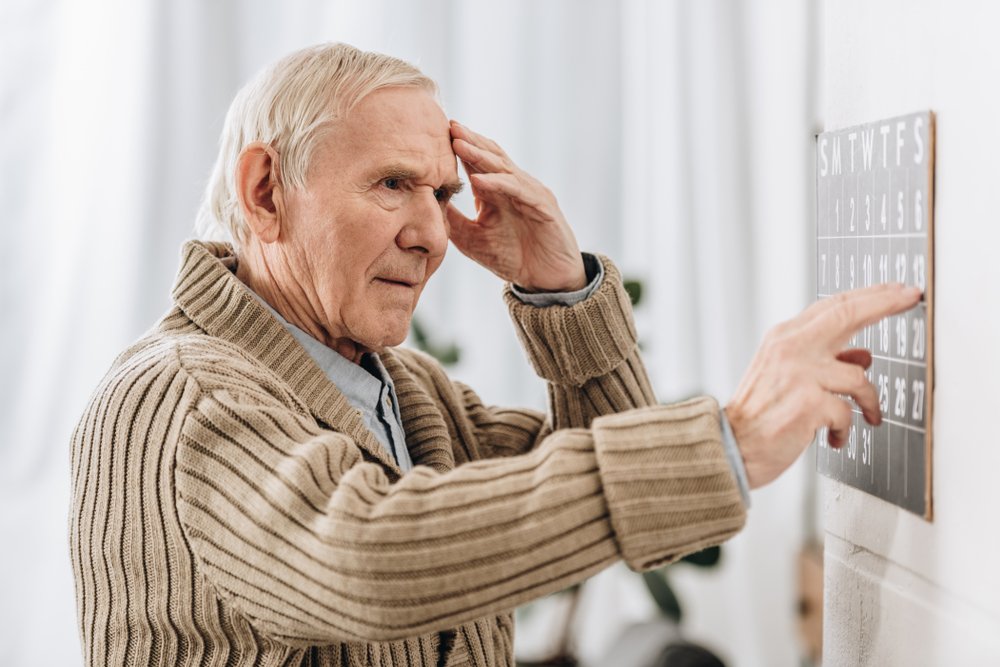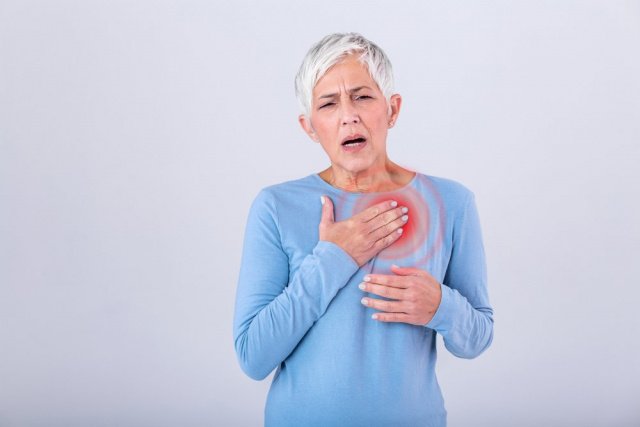Here I remember, here I don’t remember: how memory disorders manifest themselves
The human brain normally has the ability not only to perceive the world around it, but also to save the information obtained in the process. And not only to save, but also to use, extracting if necessary from “memory storages”. But sometimes there are failures in this system of perception and storage. The First Doc. tells us what types of memory disorders are known, what causes may cause them, and what they manifest themselves in.
Memory disorders and their causes
One or another memory disorder is a fairly common phenomenon. According to statistics, almost every person on Earth at least occasionally faces the fact that his memory fails him, and with more or less regular problems of this kind at least 25% of the population of the planet are familiar.
Causes of such disorders can be very different. One of the most common causes is considered by specialists to be asthenic syndrome, nervous overstrain, anxiety and depression. Asthenia can also be observed after various diseases suffered by a person.
Other causes that can cause memory impairment are more serious. These are mental illnesses and some organic lesions of the brain, including vascular abnormalities, stroke, age-related changes, tumors, injuries, etc. Memory can also be affected by alcoholism.
In some cases the disorders develop gradually without causing anxiety; in others they appear suddenly. The disorders may be expressed in varying degrees:
- Amnesia, in which memories may be absent altogether, or only for a period of time, which is more common. There are many causes of amnesia: trauma, physical and psychological, hypoxia, poisoning by various substances, etc.
- Hypomnesia, permanent or temporary, manifests itself in a decreased ability to remember. This disorder is more often manifested in cases of traumatic, vascular and atrophic processes affecting the brain, as well as simply in a state of overwork, physical or emotional. In addition, hypomnesia is a normal age phenomenon and occurs in old age in almost all people. Moreover, events disappear from memory in the reverse order to that in which they occurred: the most quickly forgotten what happened recently, and best kept in memory events of childhood and youth. This is the so-called “Ribault-Jackson law.
- Hypermnesia manifests itself in memory enhancement, and a person experiencing this phenomenon gains the ability to remember significantly more information than usual. Hypermnesia can also be transient or permanent, referring to different types of information. In most cases, this phenomenon is transient, capable of manifesting itself in states of altered consciousness. For example, under the influence of hypnosis, alcohol or psychoactive substances. It is also known that hypermnesia can appear as a component of the aura associated with grand epileptic seizures. Cases of hypermnesia in people with oligophrenia have also been described: for example, one patient, whose condition was characterized as imbecility, could unmistakably name the dates of death of all the residents of the village where he lived for 35 years.
Memory impairments may concern both the inability to assimilate and record new information, events occurring, and the inability to recall previously assimilated information. The latter phenomenon is called “anekphoria”.
Fragmentary amnesia is possible. For example, memories associated with strong negative emotions, traumatic events can disappear from memory: this is the case with hysterical amnesia. But “casual losses” are also possible – fragments of memories may drop out without connection with any unpleasant events. In this case, we are talking about scotomization of memories.
One of the varieties of hysterical amnesia is fantasy pseudologia. In this case everything that the patient does not like in his biography is dropped out of memory, and the place of the “crossed out” is taken by the invented facts or events.
Moreover, the patient himself is quite sure in the truth of his memories and notions. Hysterical phantasms can have a complex, intriguing plot, and always present the personality of the patient in an excellent light, very significant, extraordinary.
Memory fads

The most well-known phenomenon associated with memory is déjà vu, in which a person feels that a situation or event has already been experienced before. There is another, similar phenomenon: jame vu. If the first one means “already seen” in French, then the second one is translated as “never seen”. And jame vu refers to a situation when a person perceives familiar faces, objects, or places as if he or she has never seen them before or known them.
Déjà vu, according to the authors of a 2018 article, is familiar to almost all people on Earth: 97% of the world’s population has experienced the feeling at least once, and 67% experience déjà vu if not regularly, then often. Jaume vu is much less common.
The exact causes of all cases are unknown. But there is undeniable evidence that déjà vu is more common in people suffering from anxiety and depressive disorders, depersonalization, and temporal lobe epilepsy. The latter also causes déjà vu, and it is especially common after a seizure, when the person is not immediately aware of where he or she is and what or who surrounds him or her.
Turkish scientists published a paper in 2013 describing a case of persistent déjà vu in a teenager suffering from temporal lobe epilepsy. The authors of the paper note that déjà vu occurring in children and adolescents should be perceived as a possible warning sign of temporal lobe epilepsy.
In many neurological disorders, such as age-related dementia, Parkinson’s disease, and others, so-called prospective memory impairment develops, in which a person forgets about his intentions, about what he was supposed to do or planned to do.
For example, the patient may forget to take pills on time, turn off the gas or water, or forget where he or she was going and why. Prospective memory impairment in such cases is clinically important in assessing the patient’s condition. This is what Julie D. Henry reports in her article. The paper was published in 2021 in Nature Reviews Neurology.
Paramnesia: memories of the unprecedented

Confabulations are similar to hysterical phantasms and also represent false memories, the truth of which the person himself does not doubt in the slightest. But, unlike fantastical pseudologia, confabulations can have not only a grotesquely exalted character. They can also replace completely ordinary, everyday moments, or, in the case of paralytic confabulations, be completely absurd at all.
Pseudoremagnification is associated with a violation of the chronology of events. It is as if the patient is displaced in time, the past and the present are mixed up. For example, an elderly person may think that he has just graduated from the institute and started to work.
Interesting fact: Pseudoremensuration can be associated with another neurological symptom, which is that the patient forgets what he looks like and stops recognizing himself in the mirror. This is called the symptom of non-recognition.
Cryptomnesias manifest themselves as a rejection of one’s own memories, alienation from the real events of one’s life, or as appropriation of someone else’s. And it can be both the real circumstances of the lives of close or familiar people, and the plots of books or movies. For example, a woman may be sure that she is the mother of her nephews or grandchildren and “remember” how she went about being pregnant, how she gave birth to them and breastfed them. Or a sick man is sure that the movie “17 Moments of Spring” is based on the events of his life, and that he is the spy who is named Stirlitz in the movie.
Cryptomnesia also includes so-called pathological plagiarism, in which the patient attributes authorship of artistic works, inventions, or discoveries to himself, sincerely believing in the truth of his own memories of how he created them all.
Treating Memory Disorders

Whenever there is a suspicion of any memory disorder, it is necessary to see a doctor immediately and undergo a complete examination. This is extremely important, since the cause of the disorder may be developing diseases of varying severity. No self-medication should not be allowed. No “memory pills” or supplements will help if there is an organic brain damage or mental illness.
The treatment is always chosen by the doctor, and it is individualized. And it can be designed for long-term or lifelong use.
And to prevent memory disorders, it is very important to lead an active lifestyle, regardless of age. The more varied a person’s activities, the more interests and social interactions in his life, the better his brain will retain its functions. The role of a proper, balanced diet, getting enough healthy sleep, and moderate and sufficient physical activity should also not be underestimated.
Sources used
- Persistent déjà vu associated with temporal lobe epilepsy in an adolescent / Akgül S, Oksüz-Kanbur N, Turanlı G. // Turk J Pediatr. – 2013Many Faces of Déjà Vu: a Narrative Review. / Bošnjak Pašić M et al // Psychiatr Danub – 2018
- Phenomenal characteristics of cryptomnesia / Brédart S, Lampinen JM, Defeldre AC. // Memory – 2003
- Confabulation Resilience of the Developing Brain: A Brief Review / Christensen JN, Sørensen TA. // J Int Neuropsychol Soc. – 2019
- Confabulation. / Wiggins A, Bunin JL. – 2021Prospective memory impairment in neurological disorders: implications and management / Henry JD. // Nat Rev Neurol. – 2021
Read also:
- Coping with DementiaThings like forgetfulness, temporary confusion, difficulty remembering a name or word are a normal part of life. But when thinking problems or unusual behaviors start to interfere with daily activities such as working, preparing meals or checking your finances, it’s time to see a doctor. These can be signs of dementia, or what is commonly… Read more: Coping with Dementia
- What You Should Know About Uterine Fibroids in MenopauseUterine fibroids are common formations and about 80 percent of women have fibroids by the age of 50. Uterine fibroids can cause mild symptoms as well as severe symptoms. It is not known what causes fibroids, but it is known that these benign formations change over time. Experts do not know why fibroids form, but… Read more: What You Should Know About Uterine Fibroids in Menopause
- What are the dangers of carotid artery occlusion?Carotid artery occlusion is a pathology characterized by partial or complete occlusion of the lumen of the carotid arteries that carry blood to the brain. This disease causes ischemic changes in the cerebral tissues, the severity of which will depend on how developed the vascular collaterals are. A collateral is a bypass route of blood… Read more: What are the dangers of carotid artery occlusion?
- Hereditary microspherocytosis: symptoms and characteristicsHereditary microspherocytosis is a condition that causes red blood cells to be smaller than normal. It can also cause anaemia, jaundice and pain in the chest or abdomen. Read about symptoms and treatment for hereditary microspherocytosis
- Acidification of the body: truths and myths” Strong bones and an alkaline diet: there is a link.The key to a healthy body is maintaining an alkaline environment which can be achieved by eating an alkaline diet. This article discusses the myths about acidification of the body and how to maintain pH balance.
The articles on this site are for information purposes only. The site administrators are not responsible for attempting to apply any recipe, advice or diet, nor do they guarantee that the information provided will help or harm you personally. Be cautious and always consult a doctor or nutritionist!
*All products recommended are selected by our editorial team. Some of our articles include affiliate links. If you buy something through one of these links, you help us earn a small commission from the seller and thus support the writing of useful and quality articles.










